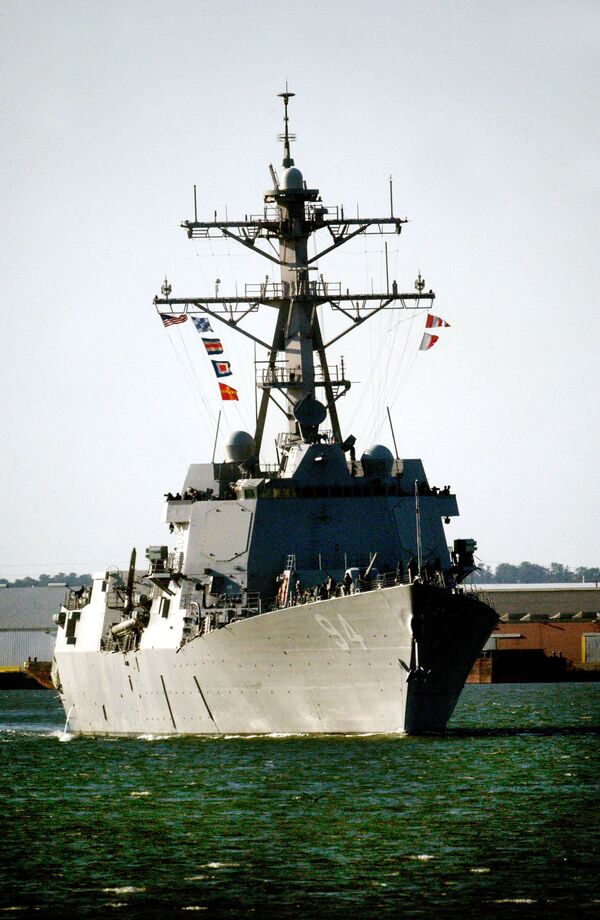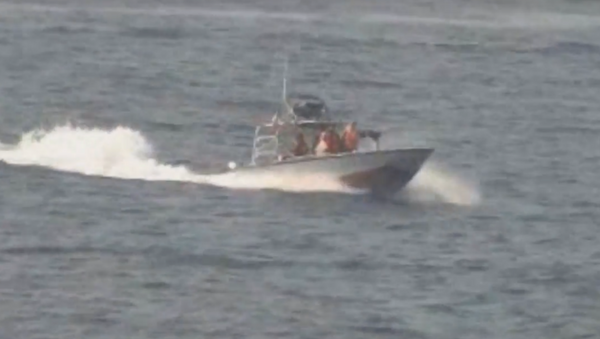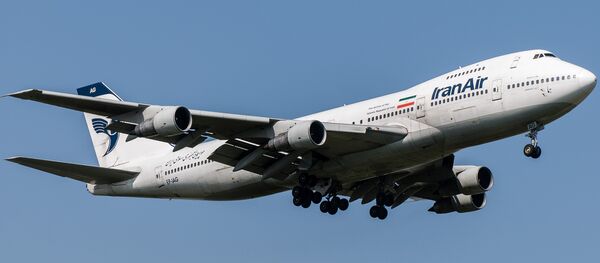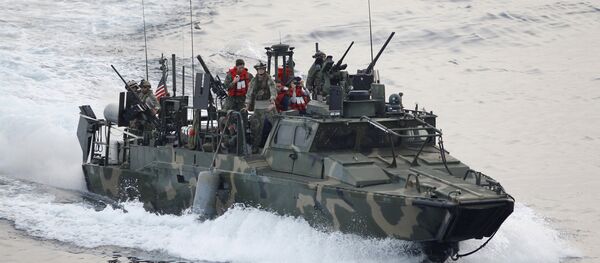The American destroyer was operating in international waters alongside the USS Mason when officials say four Iranian Revolutionary Guard Corps vessels performed a "high-speed intercept" of the Nitze.
"These sorts of unsafe and unprofessional actions can lead to escalation and miscalculation, which may necessitate additional defensive measures," said Cmdr. Bill Urban, public affairs officer for US Naval Forces Central Command, according to Stars and Stripes.
"Commanding officers have an inherent obligation for self defense."
He added that over the past year and a half, roughly 10 percent of Iran’s interactions with the US Navy were deemed unprofessional.
The US destroyer allegedly attempted to make radio contact with the vessels, but received no response. Crewmembers then sounded the Nitze’s ship whistle, a naval signal meant to express that the ship is unclear about another vessel’s intentions. The destroyer then fired ten flares toward the Revolution Guard vessels, still without response.

According to the statement, the Revolutionary Guard forced the Nitze to change course in order to avoid a potential collision.
After coming within 300 yards of the Nitze, the Iranian vessels left.
"We absolutely expect all maritime nations to act in a professional manner in accordance with international law," Urban said. "The US Navy continues to remain vigilant, and is trained to respond in a professional manner for all interactions."
The incident is under investigation, and is reminiscent of the instance in January in which two US Navy patrol vessels drifted into Iranian waters in the Persian Gulf. Crewmembers were apprehended by the Revolutionary Guard and nearly sparked an international incident in the midst of the Iran nuclear negotiations.




